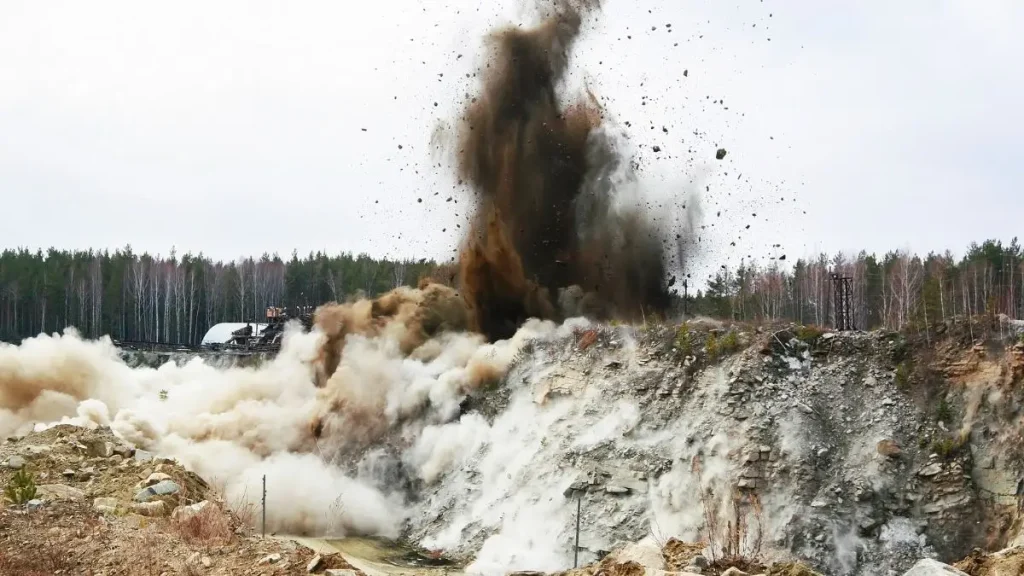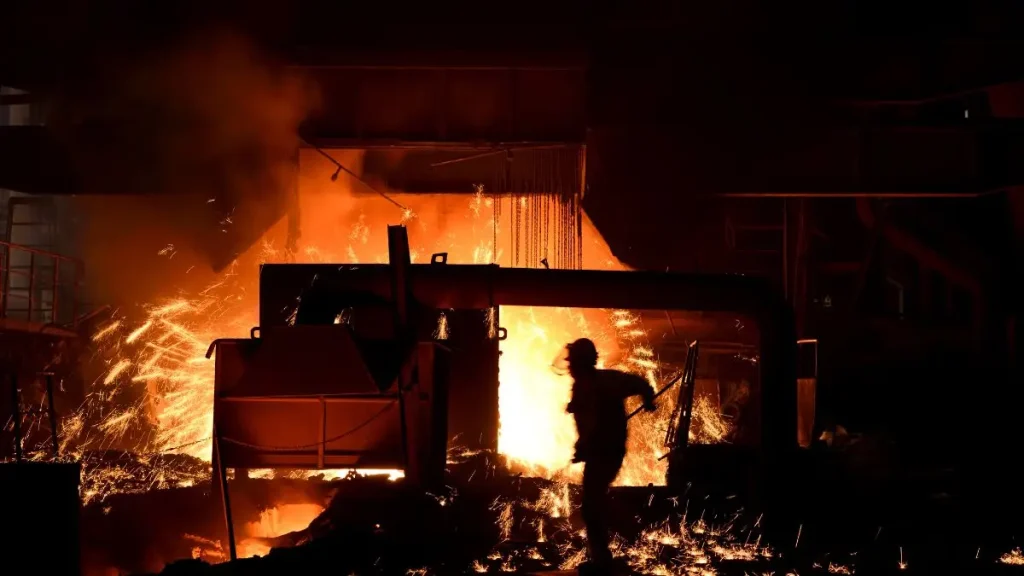Detroit Home Explosion Kills Woman and Injures Man
I was scrolling through the weekend headlines when one line hit harder than the rest—a woman lost her life and a man was badly injured after a house exploded on Detroit’s east side.
It happened just before 4 p.m. on Saturday, July 5th, on McCormick Street, not far from Moross Road and I‑94. I’ve driven past that area—quiet, mostly residential. Now, three homes on that block are completely unlivable.
As per CBS News, one neighbor, Jada Baker, said it felt like the house shook from the inside out. “Air conditioning fans and debris were all in the streets,” she told reporters. You can imagine the panic. One second it’s a typical summer afternoon, and the next—windows blown out, debris flying, neighbors screaming.
What’s clear right now is that the house at the center of the explosion is gone, and the two next to it were badly damaged. No one was inside those adjacent homes, which might’ve saved more lives. Still, fire officials have marked all three homes unsafe to live in.
It’s not just a tragic event. It’s a punch to the gut for anyone who lives in an older home or a neighborhood where infrastructure feels forgotten. We don’t yet know why the blast happened—but someone’s family just lost everything in a flash.
All Three Homes Are Gone – But How Bad Was the Damage?
Let me walk you through what really happened to those homes. The house where the explosion started? Gone. Leveled.
But it didn’t stop there. According to a detailed report from the Detroit Free Press, fire officials confirmed that the two houses directly beside it—both left and right—were also declared uninhabitable.
Now here’s the part you might not expect: no one was home in those two side houses at the time.
One neighbor had just stepped out, and the other house was completely empty. That little twist probably saved more lives.
Detroit Fire Department’s Senior Chief Darnell McLaurin made it clear—“We have the one house in the middle that exploded, and the two houses on either side of it… all three houses are uninhabitable.”
If you’re from the area, I know what you’re thinking. “Is this isolated, or is our infrastructure falling apart?”
Seeing homes wiped out in seconds hits hard. I get it. You’re not just thinking about them—you’re thinking about your own street, your own gas lines, your own family.
Events like the massive overnight fire that damaged a South Tulsa home show just how quickly things can escalate when warning signs are ignored or missed.
What Caused the Blast? Current Investigation Status

I’ll be honest with you—this is the most frustrating part: we still don’t know what caused the explosion.
I dug into The Detroit News coverage, and here’s what they found: DTE Energy was called out quickly and shut off both gas and electric services. They ran testing in and around the affected homes.
And guess what?
No natural gas leaks were detected.
Now that raises big questions, doesn’t it?
If it wasn’t a leak, then what was it? A faulty appliance? Old electrical wiring? Something hidden inside the home?
DTE gave a statement:
Testing was conducted at the incident site and neighboring homes, and no natural gas leaks were detected… our team continues to assist local authorities with the investigation.
So what do we know right now?
Nothing definitive. But here’s what I want you to take from this—don’t ignore weird signs in your house. Smelling gas? Flickering lights? Hearing strange hissing sounds? Get out. Call 911. Then call DTE or your gas provider.
We may not have all the answers yet. But we do know one thing: it’s better to overreact than not react at all.
In another heartbreaking case, two Syracuse residents were injured in an overnight house fire earlier this year, highlighting how unpredictable and devastating residential incidents can be—even when no immediate cause is clear.
Could This Happen to You? Here’s What to Watch For
Let’s be real—you’re reading this because part of you is asking, “Am I safe in my own home?”
And that’s valid. Explosions like this don’t happen every day—but when they do, they rip through people’s lives.
Now here’s what I want you to remember.
There are warning signs. According to experts, most home explosions are caused by either:
- Gas leaks (even internal leaks)
- Faulty gas appliances
- Aging pipelines or electrical malfunctions
Here’s how to protect yourself:
- Smell something odd? Could be sulfur, gas, or burning—don’t ignore it.
- Hear a hissing sound? Could mean a leak—evacuate immediately.
- Lights flickering or sparking? Shut off the power and call an electrician.
- Feel a sudden pressure drop from appliances? That could signal a breach.
I know safety talks can feel boring. But trust me—I’d rather write this now than cover another story like McCormick Street.
If you haven’t had your gas lines checked in years, call your provider. It might cost a bit. But your life and your family’s safety? Worth it.
Have thoughts or experiences with gas or fire incidents in your area? Share your story in the comments below—you never know who it might help.
What’s Being Done for the Victims and Their Families
When something like this happens, the physical damage is obvious—but the emotional toll? That’s harder to measure.
Right now, the woman who died hasn’t been publicly identified, and the man who was injured is recovering.
He survived an explosion that leveled his home. That’s not just trauma—it’s something that stays with you forever.
So who’s stepping in to help?
Detroit Fire Department has cordoned off the area.
DTE Energy has shut off utilities to all three damaged homes.
Community responders, including Red Cross of Michigan, are expected to help with temporary housing.
But here’s where you can step in too:
If you live nearby or know the family, reach out.
A meal, a blanket, even a kind message—these things matter.
And if a verified GoFundMe campaign surfaces, we’ll link it here.
In disasters like this, the Detroit spirit always shows up. Let’s keep that energy going.
Many residents rely on quick local updates shared through WhatsApp channels during emergencies like these. Staying connected during critical events can make a real difference.
Don’t Wait for a Tragedy—Here’s How to Protect Your Home

You have more control than you think.
Blasts like the one on McCormick Street are rare—but not random. They often stem from preventable issues that go unnoticed.
Here’s what I suggest, whether you rent or own:
Smell Gas?
- Leave the house immediately
- Call 911
- Then call your gas provider (in Detroit, that’s DTE: 800‑947‑5000)
Warning Signs to Watch
- Sulfur or rotten egg smell
- Hissing sounds near pipes or walls
- Pilot lights going out frequently
- Flickering lights or burning smells
Preventative Steps
- Get a gas line inspection at least once every 2–3 years
- Don’t ignore minor appliance issues—call a professional
- Install a natural gas detector in your kitchen and basement
Trust me, peace of mind is worth the cost of prevention.
Sometimes, external factors like fireworks can trigger disasters too—just like the Metro Denver house fires that damaged three homes overnight.
Final Thoughts
What happened on McCormick Street is more than just a news headline—it’s a tragic reminder of how fragile safety can be inside our own homes.
While the investigation continues, one thing is certain: awareness and early action can save lives. Whether you’re in Detroit or anywhere else, now is the time to get serious about home safety.
Interested in similar real-life home safety incidents? Check out more real reports and safety updates on our home incidents section—it might help you stay one step ahead.
Disclaimer: This article is for informational purposes only. We do not confirm the official cause of the explosion, as investigations are ongoing. For emergency situations, always contact local authorities or utility services directly.


